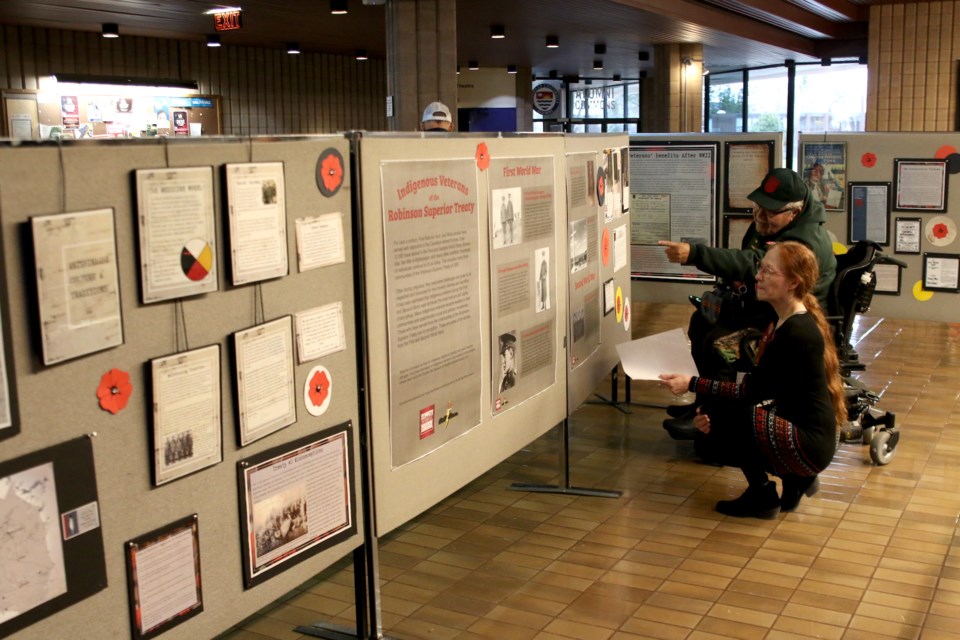THUNDER BAY — Canadian Armed Forces veteran Maj. Kerry McLaughlin’s great grandfather, Edmond St. Germain, went missing action in France during the First World War.
For decades after the century’s great conflicts, Indigenous people who died or returned home from battlefields did not receive the same recognition as other service men and women for their sacrifices, but more of their stories are being shared and their memory is being honoured.
“To commemorate his willingness at age 40 to join the Canadian Expeditionary Force in World War One, it’s important,” McLaughlin said of his great grandfather. “My dad is also a veteran of World War Two. So to celebrate and congratulate Indigenous veterans is important to me, for history’s sake, and also for families sake.”
McLaughlin, of the Métis Nation of Ontario, was one of several speakers during Lakehead University’s Indigenous Veterans Day ceremony in the Agora on Tuesday.
Indigenous Veterans Day is held every year on Nov. 8 and was first commemorated in 1994. The ceremony at Lakehead also included an exhibit of information, stories, photographs, and artifacts detailing Indigenous peoples contributions to major conflicts such as the First World War, Second World War, Korean War, peacekeeping, and the war in Afghanistan.
“We’ve had several students who have already been by. This is an important aspect. Indigenous Veterans Day hasn’t been largely recognized for that long and we are only in our second year of having this exhibit up,” said Denise Baxter, the university's vice provost Aboriginal initiatives.
“It’s an important piece of history in Northwestern Ontario because we’ve had many Indigenous, First Nation, and Métis veterans from throughout the region who have served over the last 100 years.”
Several communities and organizations contributed materials and information to the exhibit, including Treaty 3, Rainy River First Nation, Thunder Bay Museum, Fort Frances Museum, Fort William First Nation, Métis Nation of Ontario, and Red Sky Métis Nation.
Baxter said it highlights how many Indigenous veterans from across the Northwest have served and it’s important to recognize their contributions and sacrifices, both at home and abroad.
“Part of the information that is really important is many soldiers had to give up their rights as an Indigenous person, mainly their Indigenous status,” she said. “That had long lasting implications for themselves and for their families. As Indigenous people, we didn’t have the right to vote until the 1960s so we had people who really had to forsake who they were as people in recognition of the government to serve the government who was so very racist toward them.”
McLaughlin added that many Canadians don’t realize the contributions made by Indigenous people to the nation’s armed forces during some of the most significant conflicts in recent history.
“It shows you that Indigenous people believe, as being part of Canada, of being equal contributors of serving in the military,” he said. “It is an honour to be a Métis veteran and to show the Indigenous people of Canada are equal to those of non-Indigenous status and that we fight as a country and one and there is a unit to our fellow Canadians.”
The Indigenous veterans exhibit will be on display in the Lakehead University Agora until Friday.
